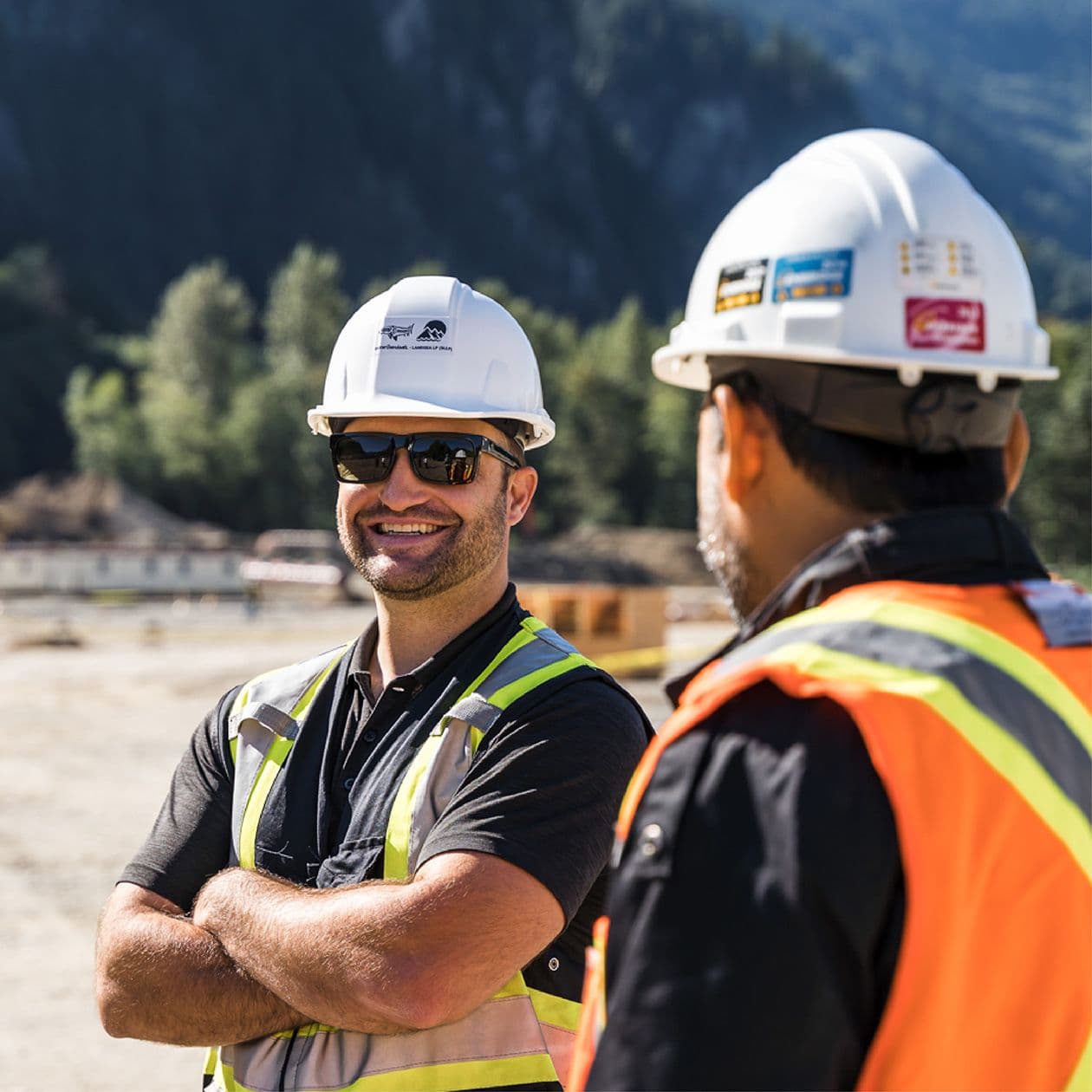The following insights were shared by SitePartners CEO, Andrew Hansen, on the Contractor Evolution podcast. Original article published on SiteNews.
So you have a solid team doing quality work. That’s great! Now the question is, how do you build a company brand that attracts the right talent and brings in new business?
Whether you’ve invested in it or not, right now your brand is talking to buyers, job seekers, and the industry as a whole.
What’s it saying?
Employer brands have become especially important in recent years as construction’s labour crisis has worsened and businesses compete for talent. It has become a massive part of the work we do at SitePartners as a specialized marketing and consulting agency built to serve the industrial sector.
Before the COVID-19 pandemic, much of our time was spent helping our clients attract the right work. Now, as the industry continues to grow and demand has taken off, roughly half of our focus has shifted to helping clients attract and retain the right people.
While many firms invest in their marketing programs, often only a small percentage is geared toward recruitment and building an employer brand that attracts talent. But whether you spend time and money on it or not, job seekers will form a perception of your company.
Own Your Story.
Here’s something we emphasize to our clients: If you don’t tell your story, someone else will. A big first step in the brand-building process is reflecting on your organization and its place in the industry. Take some time to understand the unique aspects of your business that make it what it is. Once you’ve zeroed in on that, don’t shy away from it. Instead, own it completely.
This will scare away some candidates, but attract ones who align with your work and the culture you have created. At SitePartners, we are proud to be a specialized firm that only serves the industrial sector.
For many professionals, it’s not the kind of work that interests them, and that’s okay. The ones who do apply are excited about industrial work. They love forestry, big machines, manufacturing, wearing steel-toe boots, and being on a job site. That increases the chance of a successful recruitment journey.
Create a Tailored Experience.
As the demographics of industrial workers shift towards younger candidates, expectations for the hiring process are also changing.
These candidates are used to engaging with polished tools like Amazon, Netflix, and Instagram. They’re used to a consumer-level experience tailored to them.
Fumbling around to upload PDFs and getting stuck on clunky third-party sites or a company site with low-quality photo and video assets makes for a poor experience. It’s also a huge missed opportunity for you to communicate your company brand and what working there will be like. If you care about the employee experience, own that touchpoint from start to finish. Candidates will feel that and it will put you a step above your competitors.
If you control that experience, you can get your message and assets in front of those candidates. Choosing a job is one of the biggest decisions someone can make, aside from buying a house or finding a spouse. They are going to pick through your website and social media channels to see what your story is. The application and hiring experience says a lot to potential employees about what a company will be like to work for.
Make it Personal.
The truth is that investing in your personal brand pays off.
Rather than only posting jobs and content on a corporate page, post using your personal account. If you've invested time in building your brand as an executive and industry leader, this will drive results. Content can be anything from a passionate story about the kind of candidate you are looking for to dynamic photos that reflect your work and company culture. It will always outperform a corporate page post.
But this means posting even when you aren’t seeking new employees. You started your business for a reason—post about it, talk about it, be dynamic, be personable. It may take you out of your comfort zone but if you are authentic, people will see that. This is incredibly useful for job seekers. They want to know the type of people they could be working for.
Tell an Authentic Story.
Storytelling works. It’s something humans have been drawn to for thousands of years. We are hooked by a good story, so use that in your messaging. If you had someone join you as a labourer and they worked their way up to vice president, that’s a captivating story. This is something that the biggest construction brands do on a daily basis. You can too.
Good talent isn’t looking for a job tomorrow. They are educating themselves over time. So telling those stories consistently is key.
Authenticity is just as important. Don’t be somebody you’re not. Talk on social media the same way you do to your employees. If you attract talent and hire them, they are going to see that one way or another. During our interview process at SitePartners, we almost try to scare people away and tell them up front that the work is hard, it’s dynamic, and we move fast. We want to be clear about what it’s like to work here so people know what they are signing up for.
Here are a few quick steps that any company can take to get started:
01. Audit Your Current Brand.
Look at your job ads, website, and application process to see how you come across in the marketplace and how you are presenting. What story are you telling? Have someone apply to your company and ask them how the experience went.
02. Define That Position.
Now that you know the current status of your brand, spend some time defining what you want your company’s position in the industry to be. Does it match the results of your audit? If not, you have a starting point.
03. Interview Your Top Performers.
You have access to an invaluable resource—people you have successfully attracted and retained. Talk to them to find out why. Ask them why they applied, why they stayed, and what their experience is like at your company.
04. Own It.
Once you have a clear idea of your company brand and its position, consistently push out that content on all your channels, and make sure it’s aligned. If you are starting from scratch, this will take time, but it’s a worthwhile investment. When you do have a role you need to fill, you can leverage your brand to pull in the right people.
B2B Data Highlights the Importance of Branding.
At SitePartners, all of our work is driven by data and strategy. We never go into a creative process blind hoping for the best. The data shows that it isn’t just the workforce that’s shifting. The entire B2B sector is changing.
Research shows 94% of B2B buyers considering a major purchase are researching products or services online before ever contacting a salesperson. And by the time they do, they are 57% of the way through their decision-making process. These customers are engaging with your brand and forming a perception about your company before they even talk to you.
Buyers of complex deals spend roughly 17% of their time talking to sales. And if they are talking to three vendors, a common situation, they are only talking to you for an even smaller percentage of that time. On top of that, nearly half of these B2B buyers are under 40 and extremely comfortable using digital channels. They expect a polished digital experience. Research also shows that these major B2B decisions are only being made once every five years, meaning that only 20% of your customers are looking to spend in 2024.
With so little direct contact with digitally sophisticated, young B2B buyers, how do you stand out?
You have to use your brand. Those buyers are still consuming case studies, project announcements, social media posts, website copy, and interacting with your brand in the years leading up to that big purchase. The benefits of investing time in your brand can be huge. Roughly 16% of B2B buyers found that if a brand’s content was useful to them, they went on to buy their product or service and 33% noted that if the content was high quality it gave them a positive perception of the company.
Your company’s brand is communicating with the industry right now. Are you in control of what it’s saying?
Listen to Andrew Hanson talk about brand building on the Contractor Evolution podcast by Breakthrough Academy.



